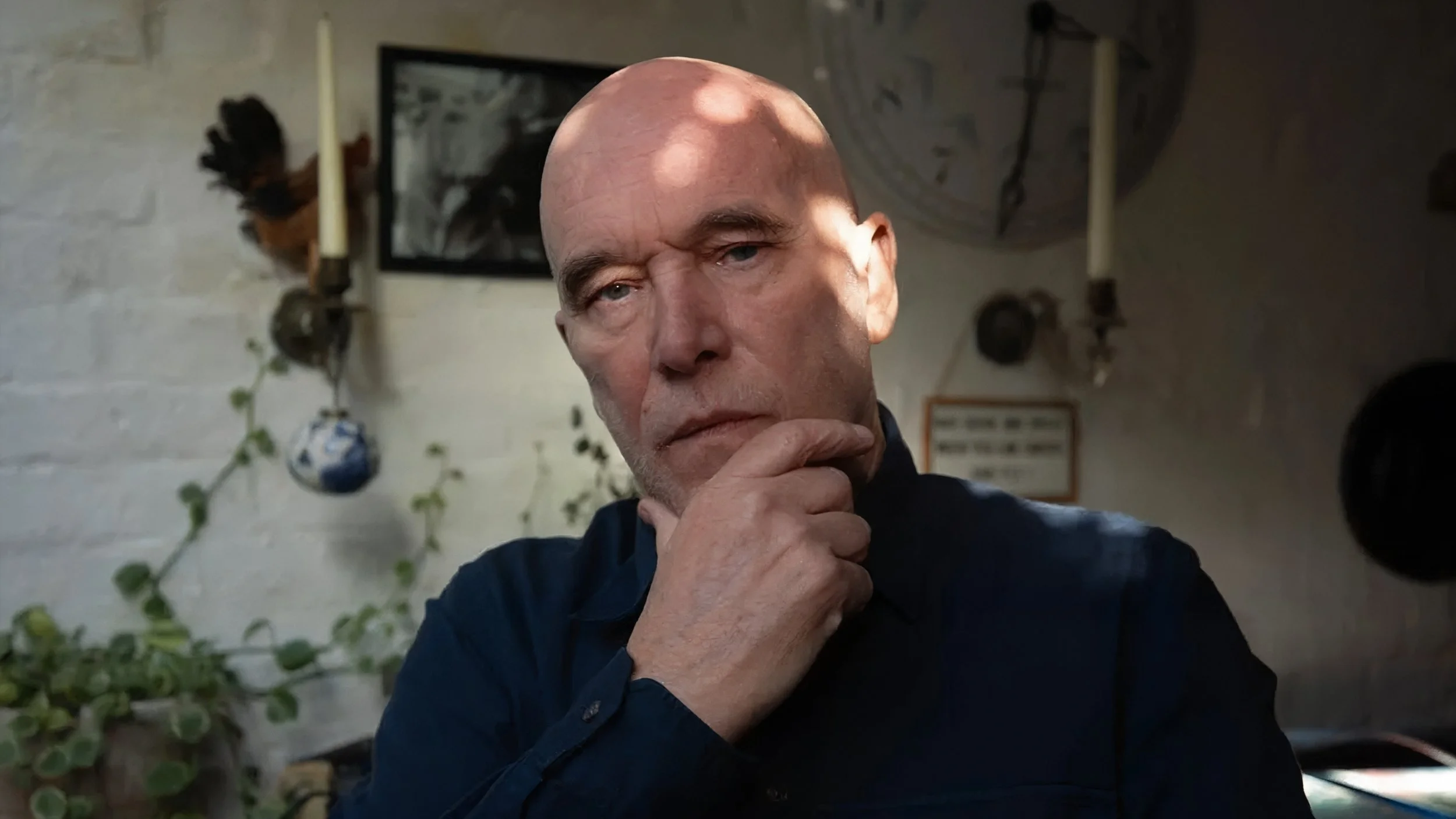
Adrian Sherwood
Name & Pronunciation: Adrian Maxwell Sherwood - pronounced AY-dree-ən SHER-wood
Years Active & Status: 1969 to Present (active)
Origin & Heritage: Born in London, England; British Caribbean/diaspora musical influence rooted in Jamaican reggae and dub traditions
Hook: As one of the most visionary dub producers bridging reggae and experimental electronics, Adrian Sherwood’s fearless studio experimentation, sonic deconstruction, and cross-genre collaborators helped lay foundational aesthetics for what would later become ReggaeEDM hybrids.
Motto/Tagline: “Comforting the Disturbed, Disturbing the Comfortable”
BIOGRAPHY
Adrian Sherwood’s musical journey began in London in the late 1960s and early 1970s, when as a teenager, he hung around West Indian clubs, absorbing the rhythms of ska, rocksteady, and dub that spilled onto the street. From those early influences, he developed a lifelong obsession with reggae’s depth, but always with a restless urge to push its boundaries. He licensed Jamaican tapes, built small labels (Carib Gems, Hitrun), and gradually honed a style of studio as instrument.
In 1979, he founded On-U Sound, which became his main vehicle for sonic experiments, working with Jamaican voices (Prince Far I, Bim Sherman, Creation Rebel) alongside punk and post-punk figures. By combining reverbs, delays, tape feedback, reverse echoes, and bold processing, Sherwood carved out a signature aesthetic of dub noir, often deconstructing tracks into abstract landscapes rather than straightforward mixes.
As his career evolved, Sherwood became a bridge between worlds: collaborating with Lee “Scratch” Perry on Rainfordand Heavy Rain, remixing industrial and electronic acts like Depeche Mode, Nine Inch Nails, Ministry, Primal Scream, and forging ties with the emerging bass music community (e.g. his work with Pinch). In interviews, he has often described himself as somewhat “tone deaf,” preferring to work by ear, textures, and intuitive manipulation rather than conventional musicianship.
Sherwood’s output in the 21st century has included solo albums (Never Trust a Hippy, Becoming a Cliché, Survival & Resistance) and recent large-scale reworking projects (e.g. Lucifer on the Moon rework by Spoon, Reset in Dub with Panda Bear x Sonic Boom). In 2025, he released The Collapse of Everything, his first solo non-collaborative album in over a decade, continuing to merge dub tradition with modern production tools and even AI-aided techniques.
Through his decades of boundary-crossing, Sherwood remains a revered elder figure—an enabler, provocateur, and sonic architect who insists on experimentation, disruption, and the continued evolution of dub into new electronic territories.
REGGAEEDM ANALYSIS
Reggae Roots
Rhythm: Sherwood often retains reggae/dub’s offbeat skanks, one-drop feel, and spacious drum patterns, but he destabilizes them by dropping, shifting, or echoing elements out of phase. He layers and fragments rhythms instead of just doubling them.
Bass: Low end in Sherwood’s mixes is treated as a malleable terrain—it can be filtered, gated, dropped, echoed, reversed. He often drops the bass or muffles it to create tension, then reintroduces weight in surprising ways.
Vocals/Message: He often works with conscious, spiritual, or socially aware reggae voices (Lee Perry, Bim Sherman, African Head Charge, Horace Andy). The vocal parts are frequently interwoven, echoed, butchered, dropped in and out, treated as another instrument rather than a fixed focal point.
Electronic/EDM Techniques
Dub Processing / Effects Warping: Classic dub techniques (delay, echo, reverb, tape loops) pushed to extremes—Sherwood reverse-plays echoes, routes effects in feedback chains, uses non-linear modulation and tape saturation to generate texture.
Deconstruction & Fragmentation: He breaks tracks into parts, drops or mutes drums, brings in sparse micro-samples, and slices arrangements midstream—this mimics modern glitch / IDM and more aggressive electronic editing.
Hybrid Band + Digital Integration: Sherwood blends live instrumentation (percussion, bass, horns) with digital synths, field recordings, noise, and AI/processing tools. The live/digital interplay often gives his work both organic hesitation and processed sheen.
Essential Works & What to Listen For
“Time Boom x De Devil Dead” (with Lee “Scratch” Perry, 1987): A landmark meeting of two dub visionaries; listen for the wild interplay of Perry’s voice with Sherwood’s cascading effect madness.
Never Trust a Hippy (2003): His first full solo statement; hear how he combines reggae cores (Sly & Robbie, Lenky) with leftfield textures and ambient spaces.
Becoming a Cliché (2006): Features multiple vocal collaborators; balance between song structure and dub breakdowns is instructive.
Survival & Resistance (2012): A modern instrumental statement; listen for cinematic distortion, delay, shifting rhythms.
Influence on ReggaeEDM
Innovations: Sherwood pioneered using dub studio techniques as production tools beyond reggae—applying them to post-punk, industrial, electronic music, thereby seeding the aesthetics of ReggaeEDM. His extreme delays, backward reverbs, micro-editing, and emphasis on spatial effect anticipated the textures of modern bass and dubstep hybrids.
Impact: Many ReggaeEDM producers regard Sherwood as a spiritual forebear. His approach to treating the studio as an instrument, fragmenting rhythms, subverting expectations of continuity, and layering dub heritage into electronic contexts has informed how reggae and EDM can fuse—not as a compromise but as a collision.
RECOMMENDED ALBUMS
Never Trust a Hippy (2003)
Spotify: https://open.spotify.com/album/0F0krET1WebqpgcFmE6w3k?si=lIVWbun_TEGm3iSaUqrkhA
Key tracks: ““Hari Up Hari,” “No Dog Jazz,” “Paradise Of Nada”
Notes: First solo LP on Real World Records, crystallizing his dub laboratory approach with heavyweight rhythm sections and spacious FX.Becoming a Cliché (2006)
Spotify: https://open.spotify.com/album/1NxNn43McpKrVUiHsk7BdR
Key tracks: “Two Versions Of The Future,” “Animal Magic,” “J’ai Changé”
Notes: A double set pairing the vocal album with a companion dub disc that shows his mixboard-as-instrument philosophy at full tilt.Survival & Resistance (2012)
Spotify: https://open.spotify.com/album/6uxtpj609rc26CGVRZpYF8
Key tracks: “Balance,” “Trapped Here,” “We Flick The Switch”
Notes: Late-period solo statement with atmospheric, slow-burn dubs and sharp sound-design detail.Late Night Endless - Sherwood & Pinch (2015)
Spotify: https://open.spotify.com/album/2FbwgXCoPa9GrNfxHskTp3
Key tracks: “Shadowrun,” “Gimmie Some More (Tight Like That),” “Run Them Away”
Notes: Cross-generational UK bass meeting of Sherwood and Pinch, fusing dub architecture with modern low-end science.Man Vs. Sofa - Sherwood & Pinch (2017)
Spotify: https://open.spotify.com/album/6m3zqmrsIC7r4KwW4RWSoF?source=reggaeedm.com
Key tracks: “Roll Call,” “Midnight Mindset,” “Lies”
Notes: A leaner, more breathable follow-up that spotlights piano motifs and a standout Lee “Scratch” Perry vocal feature.Reset in Dub - Panda Bear, Sonic Boom & Adrian Sherwood (2023)
Spotify: https://open.spotify.com/album/3lPHFDX6AHvw8cqkzJ1pf0?source=reggaeedm.com
Key tracks: “Whirlpool Dub - Adrian Sherwood ‘Reset In Dub’ Version,” “Gettin’ To The Point Dub - Adrian Sherwood ‘Reset In Dub’ Version,” “Everything’s Been Leading To This Dub - Adrian Sherwood ‘Reset In Dub’ Version”
Notes: Full-album reconstruction of Reset that adds horns, strings, and tectonic bass while stripping and re-voicing the originals.Dubsetter - Lee “Scratch” Perry & Adrian Sherwood (2015 reissue; original 2009)
Spotify: https://open.spotify.com/album/5HHmrk63Bttibj60IOgjfA?source=reggaeedm.com
Key tracks: “His Master’s Voice,” “Lucky Tarzan,” “Kingston Tower”
Notes: Sherwood’s dub reworks of The Mighty Upsetter sessions, a clinic in versioning and spatial FX.







